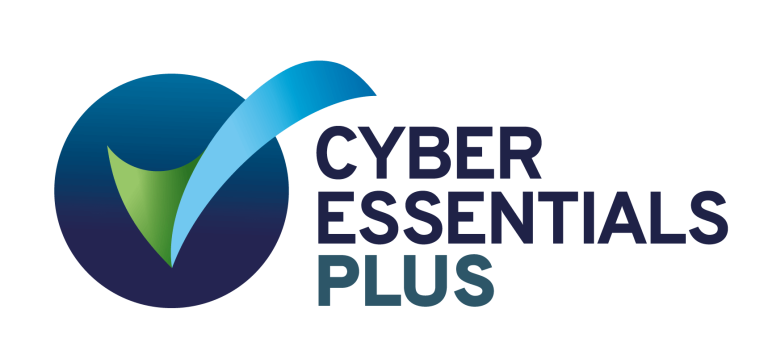If you’ve ever worked with contractors, you know how challenging it can be to manage their work. Between scheduling, tracking compliance, and ensuring work quality, contractor management can be overwhelming. Fortunately, the solution is contractor management software. This article will help you understand contractor management software, its types, how to evaluate it, and how to implement it to streamline contracting processes.
Understanding contractor management software
Definition and purpose
Contractor management software is a system that helps businesses manage their contractors from start to finish. This software automates the process of hiring, onboarding and tracking compliance contractors. It ensures compliance with regulations and provides real-time data for decision-making. The primary purpose of contractor management software is to make contract management more efficient and effective. By doing so, businesses can reduce risk, improve transparency, and increase productivity.
Contractor management software is essential for businesses that work with a large number of contractors. It helps businesses to streamline their processes and ensure compliance with regulations. It provides a centralized location for all information related to contractors, making it easier for businesses to manage their contractor workforce.
Key features and functionalities
Generally, contractor management software has three primary features: pre-qualification, onboarding, and management. Pre-qualification allows businesses to assess contractors’ suitability before hiring them. It includes background checks, verification of insurance, and risk assessments. Onboarding features simplify contractor paperwork processes and track compliance with safety protocols and policy. Management functions track job progress, ensure regulatory compliance, and automate payment processing.
Pre-qualification is an essential feature of contractor management software. It helps businesses to ensure that they are hiring the right contractor for the job. By conducting background checks and verifying insurance, businesses can reduce their risk of liability. Risk assessments help businesses to identify potential risks associated with a particular contractor and take appropriate measures to mitigate those risks.
Onboarding features are also critical for contractor management software. They simplify the process of hiring and onboarding contractors, making it easier for businesses to manage their workforce. By tracking compliance with safety protocols and policy, businesses can ensure that their contractors are working in a safe and secure environment.
Management functions are the backbone of contractor management software. They allow businesses to track job progress and ensure that contractors are meeting their obligations. By automating payment processing, businesses can ensure that their contractors are paid on time and accurately. Regulatory compliance is also critical, and contractor management software helps businesses to ensure that they are complying with all relevant regulations.
Benefits for businesses and contractors
Contractor management software benefits both contractors and businesses. For businesses, the software streamlines contracting processes, improves operations’ efficiency, and increases compliance and safety. By reducing risks, it improves business reputation and customer satisfaction. Contractors benefit from the software because it provides a transparent and streamlined contracting process. They have easier access to job opportunities, faster payments, and fewer compliance issues.
Contractor management software is essential for businesses that want to manage their contractors effectively. It helps businesses to reduce risk, improve efficiency, and ensure compliance with regulations. By automating the process of hiring, onboarding, and managing contractors, businesses can focus on their core operations and achieve their business goals.
Contractors also benefit from contractor management software. It provides them with a transparent and streamlined contracting process, making it easier for them to find job opportunities and get paid on time. By reducing compliance issues, contractors can focus on their work and deliver high-quality services to their clients.
Types of contractor management software
Contractor management software is a crucial tool for businesses that engage with contractors regularly. It helps manage the entire contracting process, from pre-qualification to payment processing. There are several types of contractor management software available in the market, each with its unique features and benefits.
Standalone solutions
Standalone contractor management software is designed explicitly for contract management. It handles all aspects of contracting, from pre-qualification to payment processing. It’s an excellent solution for businesses that have a high volume of contracting activity. With standalone software, businesses can easily manage their contracts, track contractor performance, and ensure compliance with regulations.
Standalone contractor management software is highly customizable, allowing businesses to tailor it to their specific needs. It can integrate with other software systems, such as accounting and procurement software, to streamline operations and increase efficiency.
Integrated systems
Integrated systems include contractor management software as part of a larger enterprise resource planning (ERP) system. This system manages contractor activity alongside other business operations such as accounting, procurement, and order management. It’s an excellent solution for mid-sized to large businesses that want to integrate all operations onto a single platform.
Integrated systems offer businesses a comprehensive view of their operations, enabling them to make informed decisions quickly. The software can generate reports on contractor performance, compliance, and financials, providing businesses with valuable insights into their operations.
Industry-specific software
Some industries require specialized contractor management software, such as the construction industry. Construction management software includes features such as bid management and job costing. Healthcare industry software might include credentialing and background checks.
Industry-specific software is designed to meet the unique needs of businesses in a particular industry. It helps businesses manage their contractors efficiently and effectively, ensuring compliance with industry regulations and standards.
Overall, contractor management software is an essential tool for businesses that engage with contractors regularly. It helps businesses manage their contracts, track contractor performance, and ensure compliance with regulations. With the right contractor management software, businesses can streamline their operations, increase efficiency, and reduce risk.
Evaluating contractor management software
Assessing your business needs
Before choosing contractor management software, consider your business requirements. Identify the volume of contracting activity, the types of contracts you manage, and the compliance and safety protocols required to mitigate risk. Ensure the software you select meets your specific needs.
Comparing software options
Before selecting software, compare the options available to you. Consider the features, functionality, and pricing. You may want to engage in a trial period to assess how the software will fit your organization. When considering pricing, take note of any additional costs that may be required at a later stage.
Reading reviews and testimonials
Reviews and testimonials can be an excellent resource when evaluating contractor management software. Read customer and industry reviews to learn how others have used the software and their experience with it. Look for information about customer support, training, and software updates.
Implementing contractor management software
Preparing your organisation
Before implementing contractor management software, prepare your organization by ensuring staff understand the new system’s functions. Determine who is responsible for managing the software and policies regarding contractors that are not using it. Prepare your existing contracting process data transfer to the new software.
Training and onboarding
Training and onboarding are critical to ensure a successful implementation. Training should be provided to all staff who will use the software, including contractors and project managers. Provide support materials and ensure that training meets your business’s specific needs.
Conclusion
Contractor management software is an essential tool for businesses that manage contractors. It streamlines contracting processes, increases transparency, and reduces risks to businesses and contractors alike. As you evaluate software options, consider your business requirements, review features and pricing, and look for reading customer feedback. When implemented, ensure staff are well-trained and monitor performance, adjusting the software to meet your business’s needs.
See Evalu-8 EHS in action
The leading choice of EHS software for small to large companies in the manufacturing sector that want to get control of there safety



